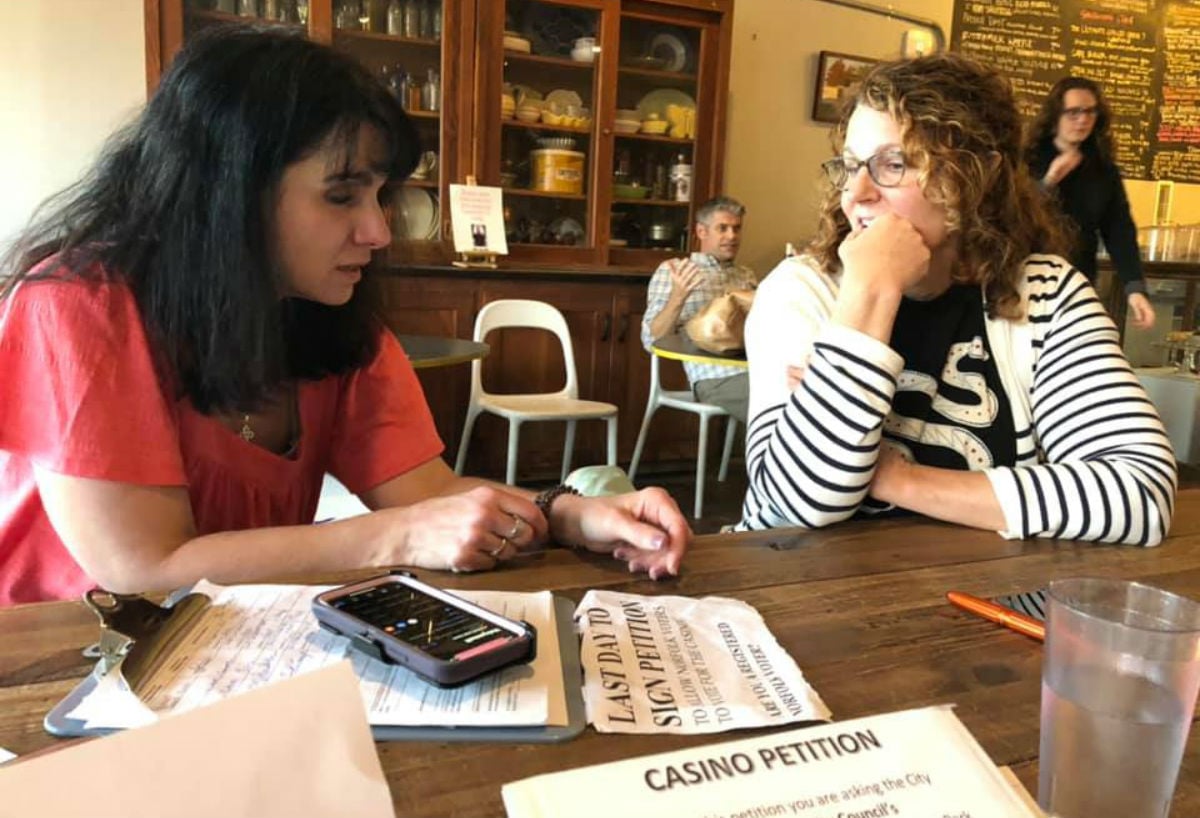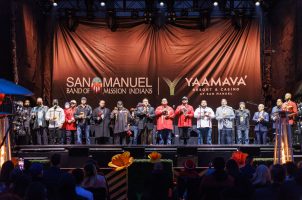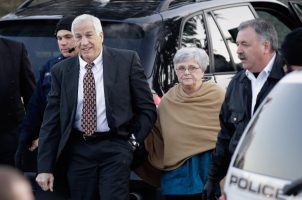Norfolk Casino Plan Moves Forward Following Failed Campaign to Halt City Council Approval
Posted on: October 25, 2019, 11:30h.
Last updated on: October 25, 2019, 10:48h.
The Norfolk casino proposal from Virginia’s Pamunkey Indian Tribe is moving forward. That’s after an opposition group failed to obtain enough signatures to force a public referendum vote on the city council’s endorsement of the $700 million project.

Say NO to the Norfolk Casino – a group formed to challenge the Norfolk City Council’s approval of a waterfront land deal on the Elizabeth River – said it was 320 signatures short at the Thursday deadline. The campaign needed 4,000 signatures to annul the council’s go-ahead and put the land sale decision up to local voters.
Despite our best efforts, we were unable to get all of the signatures we needed to force a referendum on the Intergovernmental Agreement with the Pamunkey Tribe,” the campaign explained.
The council voted 7-1 on September 24 to sell 13.25 acres of city-owned land next to Harbor Park to the tribe for $10 million. The Pamunkey people are expected to petition the US Department of the Interior (DOI) to take the land into federal trust.
Challenges Remain
The Pamunkey tribal casino could feature as many as 4,000 slot machines and 225 table games, plus a 500-room hotel.
Norfolk City Council and the Native American group have agreed to terms that the tribe will pay the city $125,000 annually until the casino opens, and then share four percent of gross gaming revenues – or a minimum of $3 million per year – with the local government.
But before all this can happen, the Pamunkeys – if they want the property to be a tribal casino – must have the DOI take the land into trust. The tribe’s sovereign reservation is located some 70 miles northwest of Norfolk.
For the DOI to take newly acquired lands into federal trust, the Native American group must prove ancestral ties to the area in question. Another concern comes from a 2009 US Supreme Court decision that ruled tribes must have been federally recognized in 1934, when the Indian Reorganization Act was passed, to qualify for placing new lands on the Federal Register.
The DOI Bureau of Indian Affairs is permitted to make exceptions. But tribes only need to look to Connecticut’s Mashantucket Pequot and Mohegan Indians, as well as the Mashpee Wampanoag in Massachusetts, to understand the difficulty in achieving such federal approval.
Finally, if all goes smoothly for the Pamunkey Indian Tribe, to operate Class III gaming – slot machines and table games – a gaming compact with the state would need to be reached.
Virginia Gambling
Gov. Ralph Northam (D) signed SB 1126 in March to effectively bring Virginia’s prohibition on casinos to an end. The legislation earmarks casinos for five cities: Bristol, Danville, Portsmouth, Richmond, and Norfolk.
Local voters in each will be asked in November 2020 if they want to permit a casino in their town.
Senior Norfolk resident Marvin Pervis does. He told the city council last month that he’s tired of traveling to Maryland, Delaware, and Atlantic City to gamble.
“Why should I be spending my money in these other places when I could spend it here? This city needs this casino,” Pervis opined. “If you’re Christian, go to church. I’m 83 years old and I love to live.”
Related News Articles
Most Popular
This Pizza & Wings Costs $653 at Allegiant VIP Box in Vegas!
Sphere Threat Prompts Dolan to End Oak View Agreement
MGM Springfield Casino Evacuated Following Weekend Blaze
Atlantic City Casinos Experience Haunting October as Gaming Win Falls 8.5%
Most Commented
-
VEGAS MYTHS RE-BUSTED: Casinos Pump in Extra Oxygen
— November 15, 2024 — 4 Comments -
VEGAS MYTHS RE-BUSTED: The Final Resting Place of Whiskey Pete
— October 25, 2024 — 3 Comments -
Chukchansi Gold Casino Hit with Protests Against Disenrollment
— October 21, 2024 — 3 Comments
















Last Comment ( 1 )
Kudos on the accuracy of the statement, "the Pamunkeys – if they want the property to be a tribal casino – must have the DOI take the land into trust." That is because the VA SB1126 cited allows the Pamunkey to bring a commercial gaming operation to Norfolk (assuming a passed citizen referendum as mentioned in the article. Points off for the statement, "Another concern comes from a 2009 US Supreme Court decision that ruled tribes must have been federally recognized in 1934,". This is incorrect. The Supreme Court only said a tribe must have been under federal jurisdiction in 1934. The two concepts are different. Points off again for the statement, "if all goes smoothly for the Pamunkey Indian Tribe, to operate Class III gaming – slot machines and table games – a gaming compact with the state would need to be reached." As stated, the Pamunkeys can conduct commercial gaming, to include what is known as Class III (an Indian gaming term) without a compact.